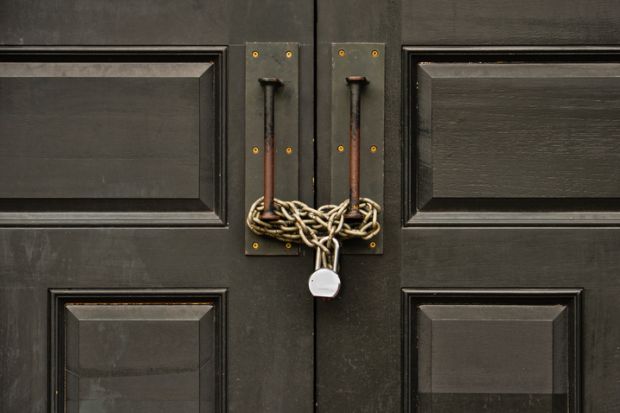UK higher education’s largest union has said plans to put students into a pre-Christmas lockdown are “unworkable and chaotic”.
The comments come after The Guardian reported that the government was planning to put students in English universities into a two-week lockdown at the end of term, to allow them to go home for Christmas and to limit the spread of coronavirus when they do.
The plan suggests that from 8 December to 22 December all teaching would have to move online and students would have to remain on campus.
It comes as Covid-19 cases continue to spike across the country. On 14 October the University of Birmingham reported 301 new cases among students in the past week, while the University of Leeds reported that as of 11 October there were 525 active cases at the institution.
Some universities with higher numbers have already switched their teaching online, including Manchester’s two largest universities, Newcastle and Northumbria universities and both the University of Sheffield and Sheffield Hallam University.
However, University and College Union general secretary Jo Grady said the pre-Christmas lockdown plan was “an unworkable and chaotic set of measures that will be impossible to deliver or oversee”.
“Instead of this perverse obsession with Christmas, ministers and universities must focus on the here and now. We should be talking about getting people home now, not in two months’ time. The mass relocation of over a million students is going to take time and serious resources, as is looking after them while they are forced into quarantine or lockdown,” she said.
“We are currently moving into stricter UK-wide measures, yet in-person activities are continuing on campus causing infections to rise. Students are yo-yoing in and out of self-isolation and universities are seeking to profiteer on basic care packages. This is a terrible plan that has been drawn up without the input of the people it affects the most, staff and students,” Dr Grady added.
“This is a government completely out of touch with the public and seemingly unaware of what happens at universities. Instead of continuing on its path of negligence, the government needs to scrap this unworkable plan now, move all possible activities online, and adopt a better approach to funding that supports flexibility for students, security for staff, stability for the sector, and safety for all,” she said.
The National Union of Students also criticised the plans. Speaking on LBC radio, NUS president Larissa Kennedy questioned whether there was legal precedent to take this action “and to treat students differently than the rest of the population, largely because students just aren’t the homogenous group that the government seems to think they are”.
“There are students of all ages, students who are parents and carers. I mean what would this mean for students with jobs that they can’t do remotely?”
Others have pointed out that not all university terms end at the same time: for example, the University of Cambridge is due to finish on 6 December, and the University of Oxford on 7 December.
A Department for Education spokesperson said that “all students will be able to go home at Christmas if they so choose. However, if students are travelling home, we must ensure they do so in a way which minimises the risks of spreading the virus, and the date when universities must stop in-person teaching will be an important part of this. We will set out details on this shortly.”
The spokesperson added: “We have issued clear guidance setting out four tiers of restrictions for education settings, and continue to work closely with universities and public health officials to make decisions about what measures need to be applied to respond appropriately to the situation locally.”




